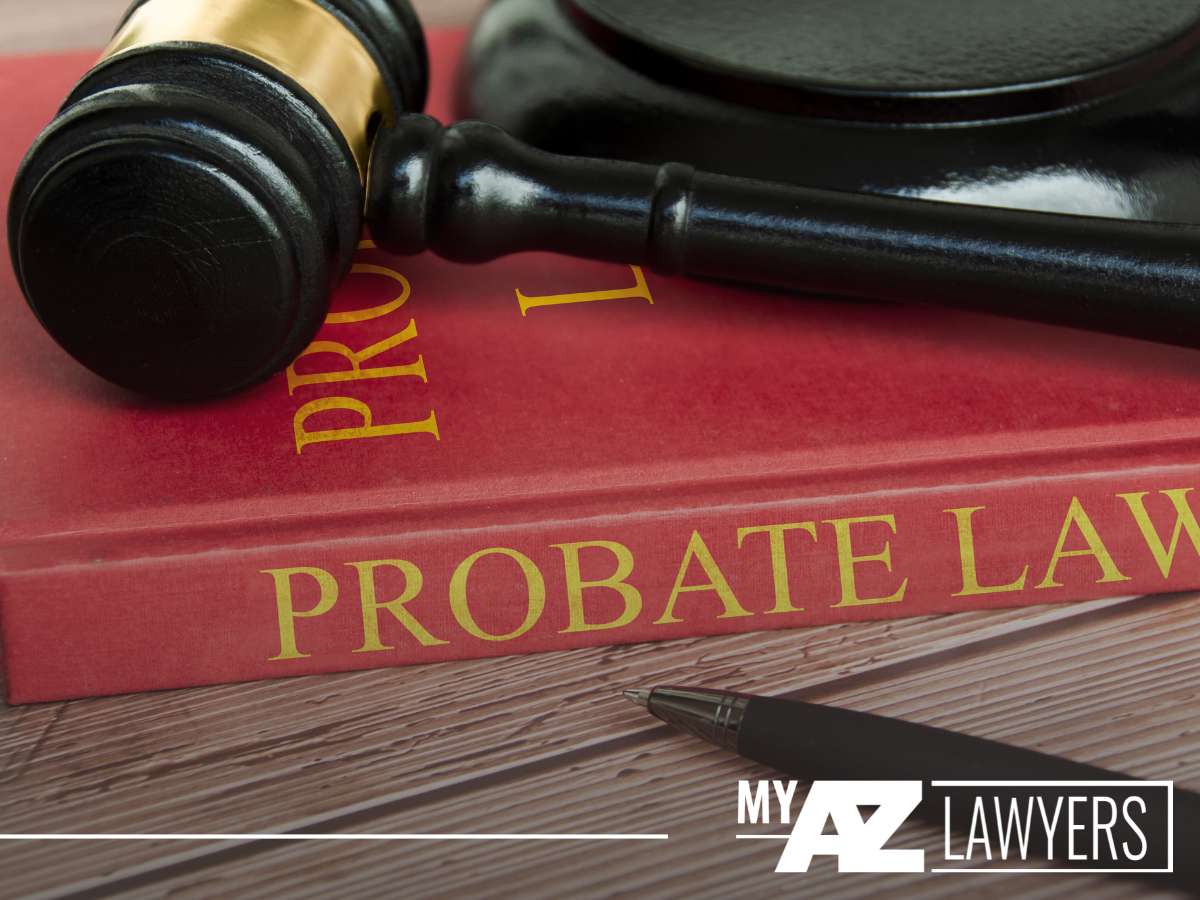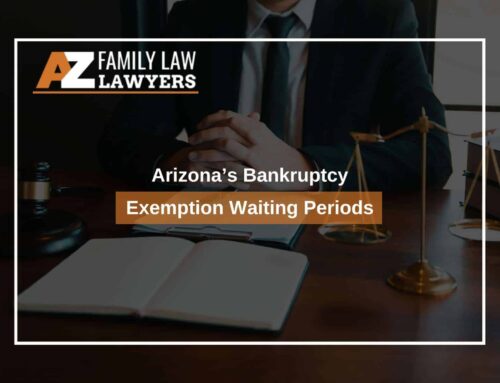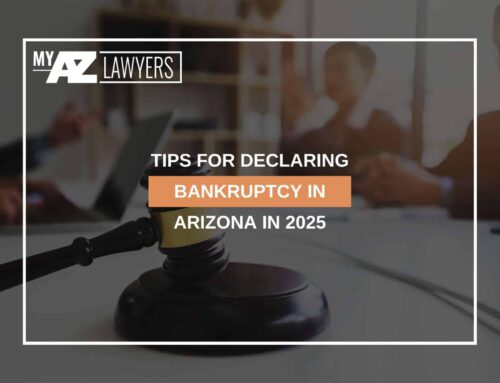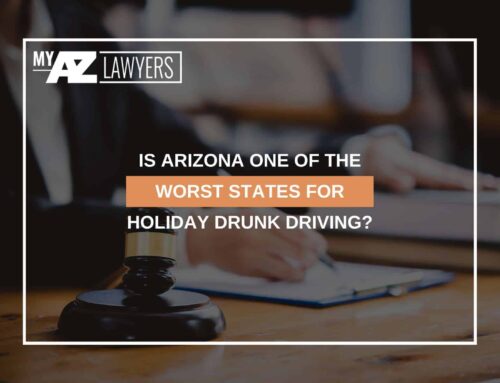Table Of Contents
How Probate Laws Work In Arizona
What Are The Different Types Of Probate In AZ?
Probate is the process by which a deceased person’s assets are transferred to their heirs. The deceased person’s will is examined by a probate registrar to determine whether it is legal and admissible in court. If it is not legal, Arizona’s state laws will control the process and the transfer of a deceased person’s estate will be handled in an extensive court process.
Probate is a complex process that can take many months to finalize while requiring extensive paperwork and legal documentation, so it’s ideal to have your estate planning documents prepared before your passing to simplify the process for your heirs and survivors. Working with a Mesa estate planning lawyer can help expedite and simplify the probate process and is the best way to prepare legally binding estate planning documentation in advance of your death.

How Does Probate Work In Arizona?
Filing With Probate Court
Once a person dies, probate begins when an interested party, usually a relative or close friend, files the will – if the deceased had one – and a petition with the probate court. Most of the time, the court will appoint the executor of the will to be the personal representative, unless there is a legitimate reason why that person cannot or should not be appointed to fulfill that role.
If the deceased did not have a will or the will does not name a personal representative, the probate court will rely on Arizona’s probate laws. State statutes list individuals who have priority for appointment as personal representatives. The surviving spouse will be the first choice, followed by other close family members.
Determination Of Personal Representative
The probate court must determine whether the will is valid and legally binding. If it is, the probate court will give letters of administration to the personal representative. These documents demonstrate the personal representative’s legal right to manage the estate, including distributions and payments.
Personal Representative Fulfills the Will
Once selected by the probate court, the personal representative will notify inheritors and creditors about the estate. Inheritors must be notified within 30 days of the person’s death. Creditors are notified via a local newspaper notice for three weeks as well as through the mail. Creditors who receive a notice through the mail have 60 days to make their claim against the estate.
The personal representative will gather all of the estate’s assets. They have a responsibility to inventory, manage, and protect the estate’s assets until they can be appropriately distributed. Once creditors have been paid, the personal representative will distribute the remaining assets to the beneficiaries and inheritors of the estate. Finally, the personal representative files a petition to close the estate.
The process of probate can be complicated and may feel overwhelming to grieving family members, especially if the deceased did not have estate planning documents prepared. Your Glendale estate planning lawyer can help survivors manage the estate and assist with the probate process.
What Types Of Probate Does Arizona Recognize?
There are three ways to probate an estate in Arizona: formal, informal, and supervised. Some properties and assets are exempt from probate while others must go through the process.
Informal probate is the simplest form and is used when a legal will is not challenged. There will be minimal court supervision as a court representative administers the terms of the will.
Formal probate is used to resolve legal issues, such as when the validity of a will is contested, there is disagreement over the personal representative, or there are conflicting interpretations of the will.
Supervised probate is an extensive process in which the court oversees every aspect of the process. The personal representative must have probate court approval for each action he or she takes, including paying creditors or distributing assets. Supervised probate can be requested by anyone who has an interest in the estate and is most commonly used when an interested party or heir needs protection.
Contact your Tempe estate planning attorney to learn more about which type of probate applies to your situation.
What Are Some Exceptions To Probate?
Some estates will not need to go through probate, while others qualify for simplified probate. Some types of assets automatically pass to an heir without any oversight from the probate court.
Assets that are exempt from the probate court in Arizona include:
- Property held jointly: Real estate, homes, bank accounts, and other assets held in joint tenancy pass directly to the surviving owner.
- Living trust assets
- Payable-on-death (POD) bank accounts:: These accounts pass directly to the named beneficiary.
- Assets registered in transfer-on-death (TOD): These accounts, which can include homes, real estate, vehicles, and more, pass directly to the named beneficiary.
- Community property with a right of survivorship: Property transfers directly to the surviving spouse
- Contracts, such as life insurance policies and annuities
- Retirement accounts: If there is a named beneficiary, retirement account funds pass directly to that person.
If you have questions about probate and want to prepare your estate to avoid probate, consult with an experienced Mesa estate planning attorney.
Receive Guidance Through Probate From An Experienced Estate Planning Attorney
If you need guidance as you go through probate after the passing of a loved one, or want to prepare estate planning documents to ease the probate process for your survivors, consult with My AZ Lawyers. We are ready to walk you through the probate process, help you understand which documents you need, and ensure that everything is handled legally and professionally. Give yourself and your family peace of mind by planning your estate today! Schedule your free consultation with us to learn more about how we can serve you.
LISTEN TO THE PODCAST VERSION OF THIS ARTICLE
Arizona Offices:
Mesa Location:
1731 West Baseline Rd., Suite #100
Mesa, AZ 85202
Office: (480) 448-9800
Email: info@myazlawyers.com
Website: https://myazlawyers.com/
Phoenix Location:
343 West Roosevelt, Suite #100
Phoenix, AZ 85003
Office: (602) 609-7000
Glendale Location:
20325 N 51st Avenue Suite #134, Building 5
Glendale, AZ 85308
Office: (602) 509-0955
Tucson Location:
2 East Congress St., Suite #900-6A
Tucson, AZ 85701
Office: (520) 441-1450
Avondale Location:
12725 W. Indian School Rd., Ste E, #101
Avondale, AZ 85392
Office: (623) 469-6603














